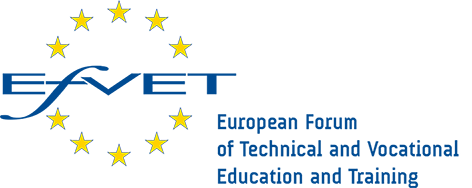About Uniser and our Mission
Uniser Teacher Week
We are the engine of an international community of VET providers which every year exchange nearly 3.000 students and teachers. By reinvesting the cooperative’s surplus, Uniser aims at improving the quality of its services, designed for supporting colleges, schools and training centres in their internationalisation process and in the organisation of learning mobility.
The Uniser Teacher Week is a space for teachers and school leaders dedicated to common reflection, forward thinking and mutual learning about the internationalisation of education. A co-operative training course where inspirations and ideas turn into new projects and partnerships.
Teacher Week 2025 Edition
Empowering Schools For
Inclusive Internationalisation
“The motto of our European Union is: ‘United in diversity’. Our task is to live up to these words, and to fulfil their meaning.”
The Uniser Teacher Week is a teacher training course centred on internationalisation and Erasmus+ project design. Over three dynamic days, 100+ educators from Europe and beyond engage in collaborative learning: they draw inspiration from peers while crafting their next Erasmus+ project and forging vital partnerships.
Attendees select their preferred Erasmus Action – Learning Mobility, Cooperation Partnerships, or Partnerships for Innovation. Through Erasmus+ Labs and peer-led workshops, they master project conception and best practices. Keynote speeches and field visits broaden horizons.
In 2025 our event focuses on “Empowering Schools for Inclusive Internationalisation”, aiming to equip school staff and decision-makers with the knowledge, skills, and strategies needed to create inclusive learning environments within the framework of international education. This will support schools in conceiving and implementing effective inclusion strategies. The theme recognizes that teachers are key players in successful inclusion within their internationalisation efforts, fostering a more equitable and diverse global education landscape.
Objectives:
ENHANCE EDUCATOR COMPETENCES
Provide school staff and teachers with practical tools and resources to integrate inclusive practices into their international programmes.
PROMOTE AWARENESS AND UNDERSTANDING
Increase understanding of the barriers to inclusion in internationalisation and mobility activities, and how to overcome them.
FACILITATE PEER LEARNING AND EXCHANGE
Encourage the sharing of best practices and experiences among participating educators, fostering a community of practice dedicated to inclusive internationalisation.
SUPPORT INSTITUTIONAL CHANGE
Offer guidance on how schools and institutions can adopt policies and practices that support inclusive internationalisation and mobility activities.
Key Topics:
INCLUSIVE CURRICULUM DESIGN FOR INTERNATIONAL PROGRAMMES
→←
How to design curricula that cater to diverse learning needs and ensure all students benefit from international opportunities.
OVERCOMING BARRIERS TO PARTICIPATION
→←
Addressing challenges such as language barriers, cultural differences, financial constraints, and physical or learning disabilities in the context of internationalisation and mobility.
CULTURALLY RESPONSIVE TEACHING
→←
Strategies for teaching in diverse, multicultural classrooms and promoting a global mindset among students.
LEVERAGING TECHNOLOGY FOR INCLUSION
→←
Using digital tools and platforms to facilitate inclusive international experiences, particularly for students who may not be able to participate in physical mobility programmes.







